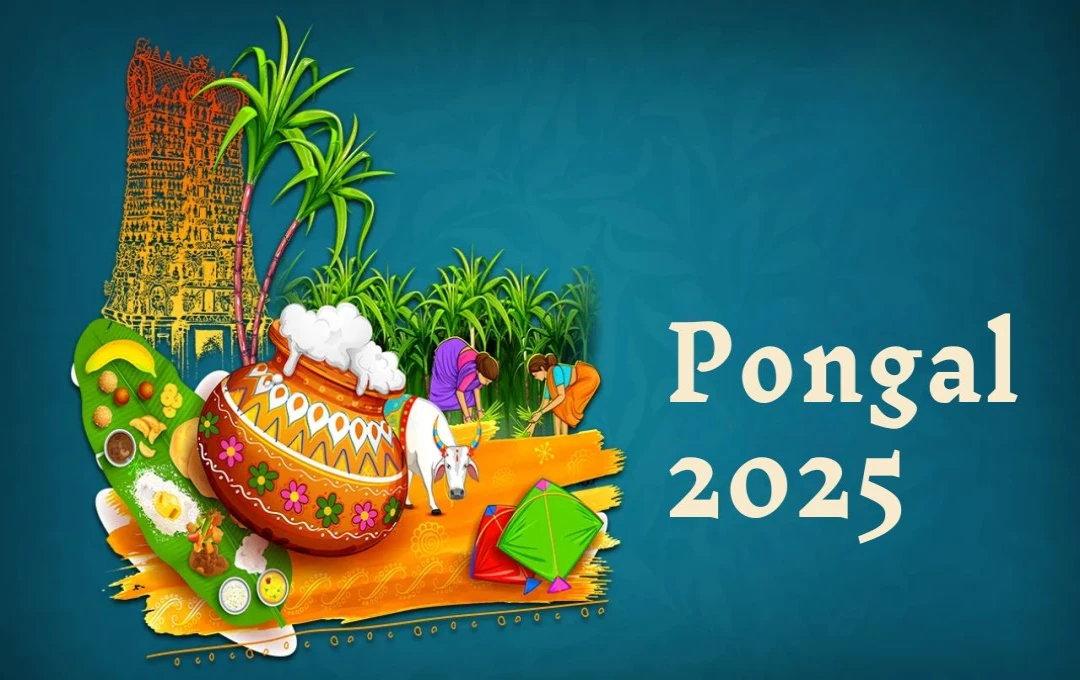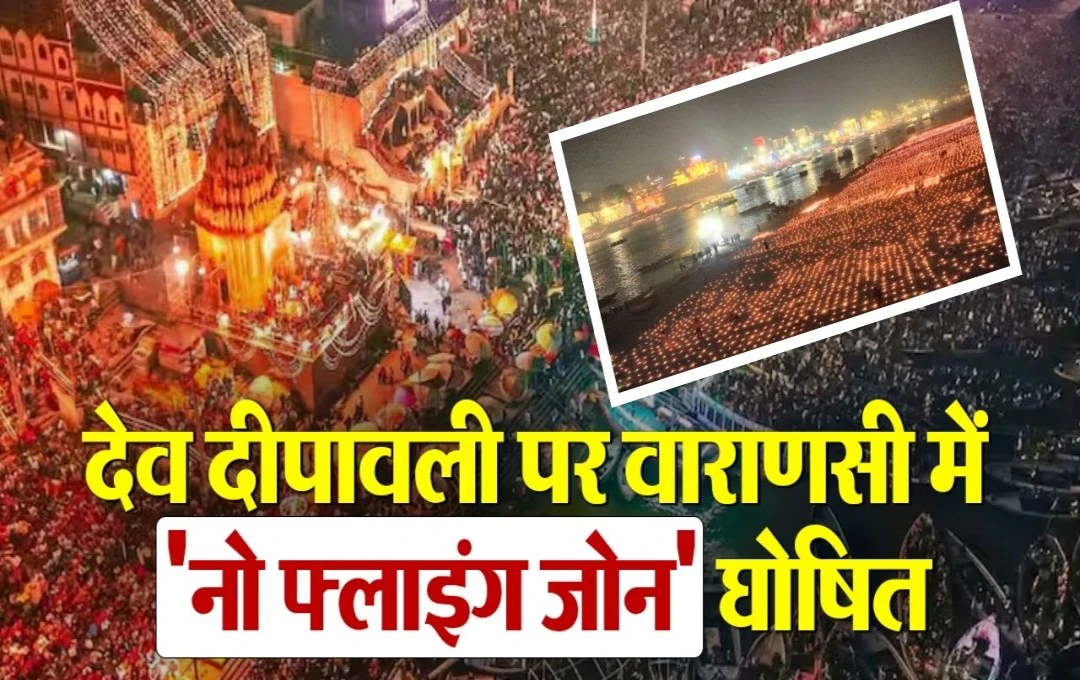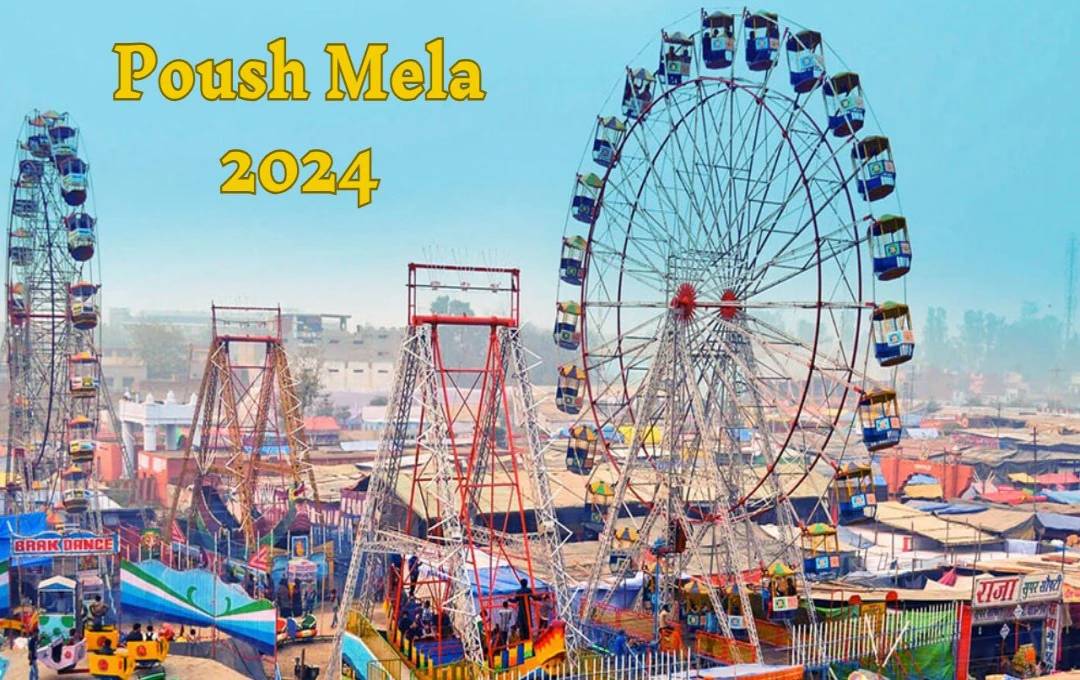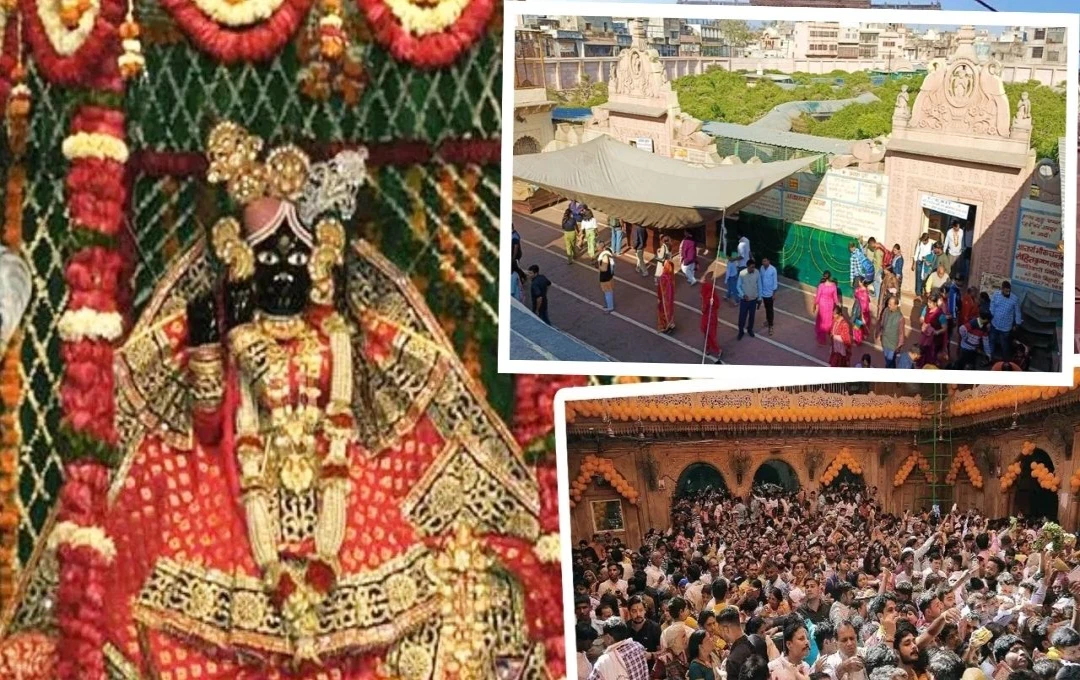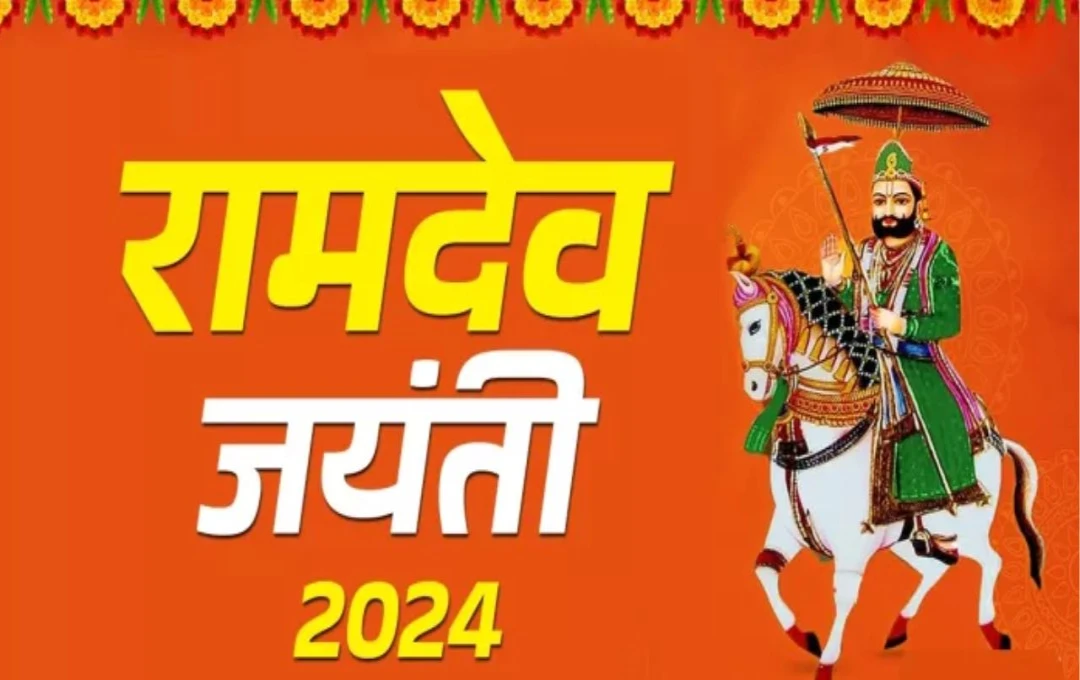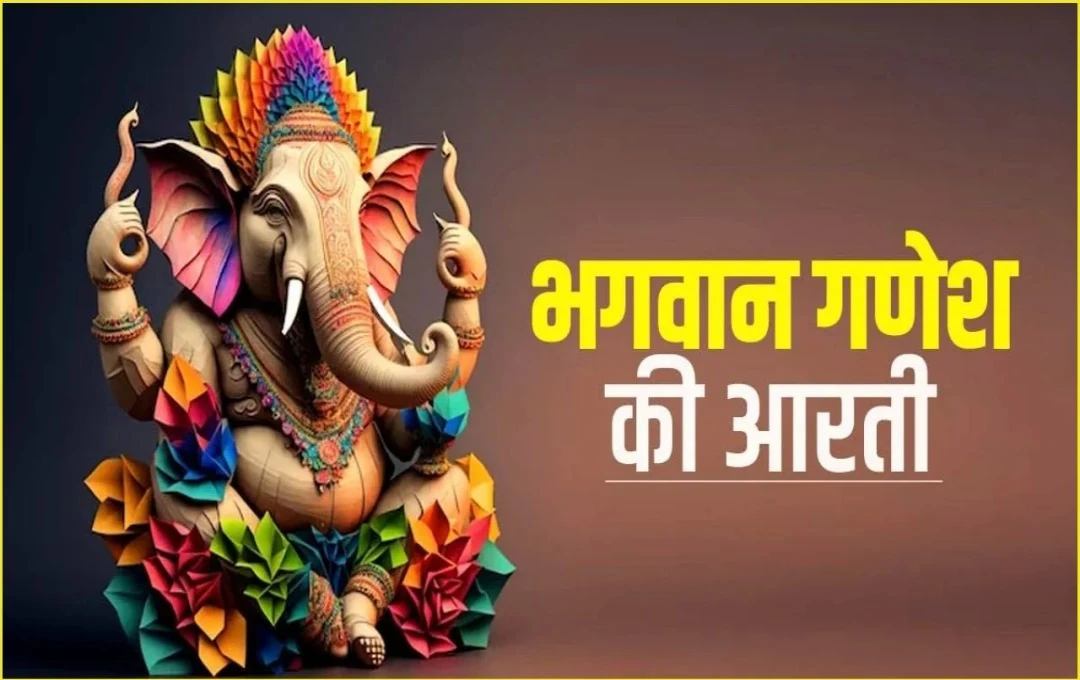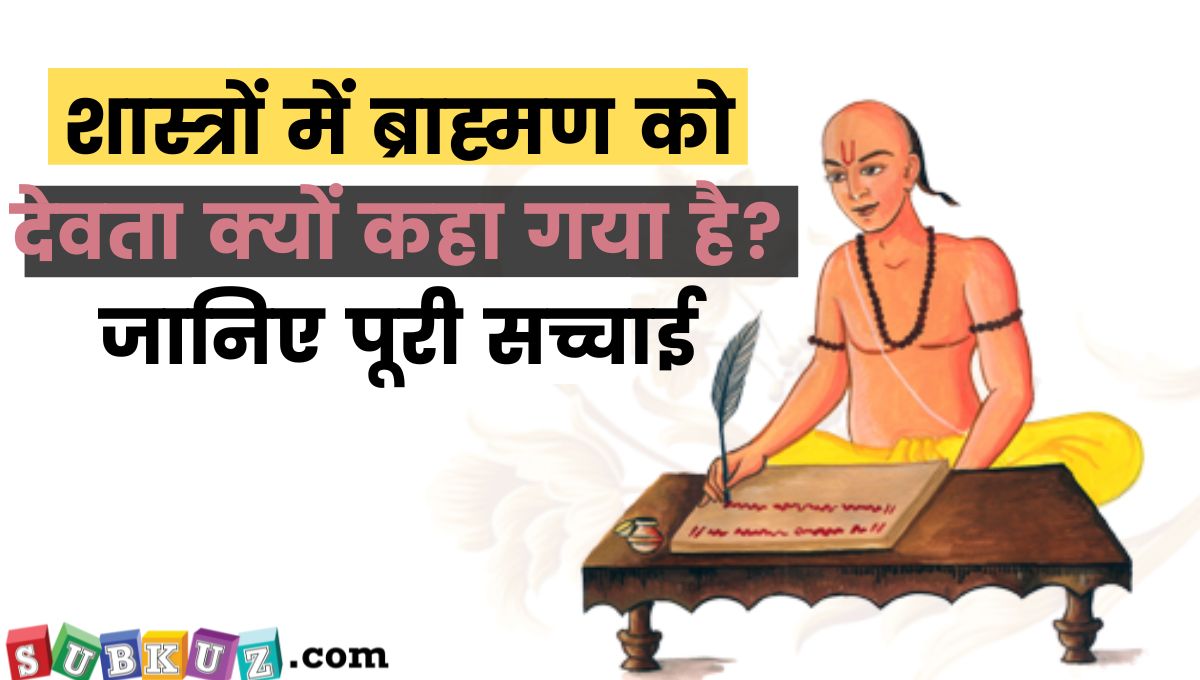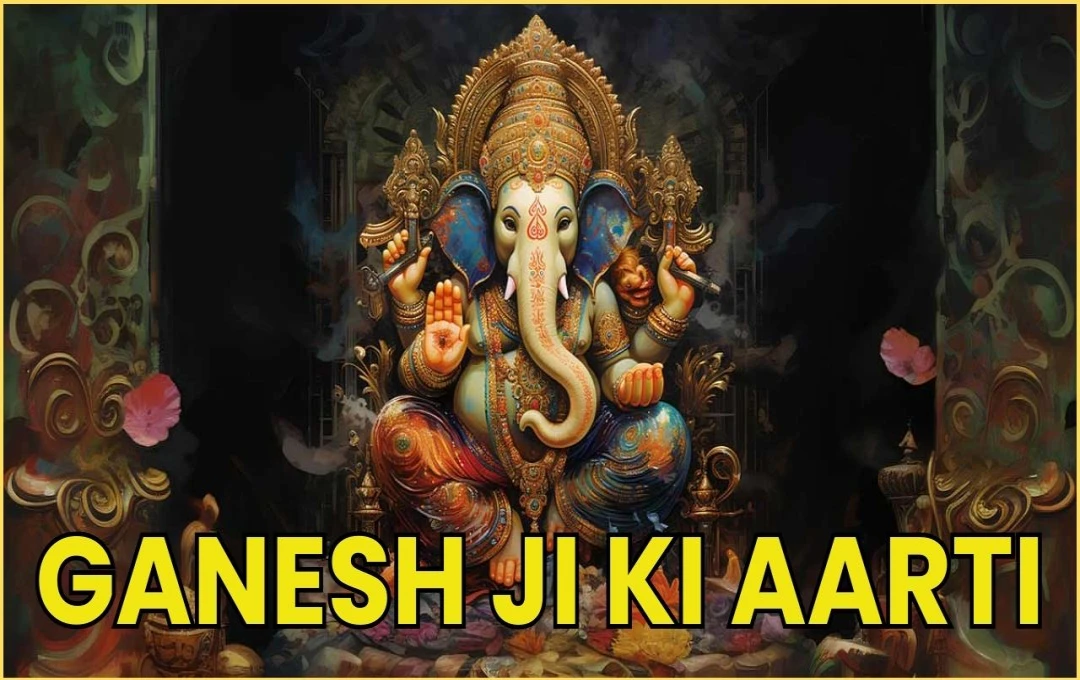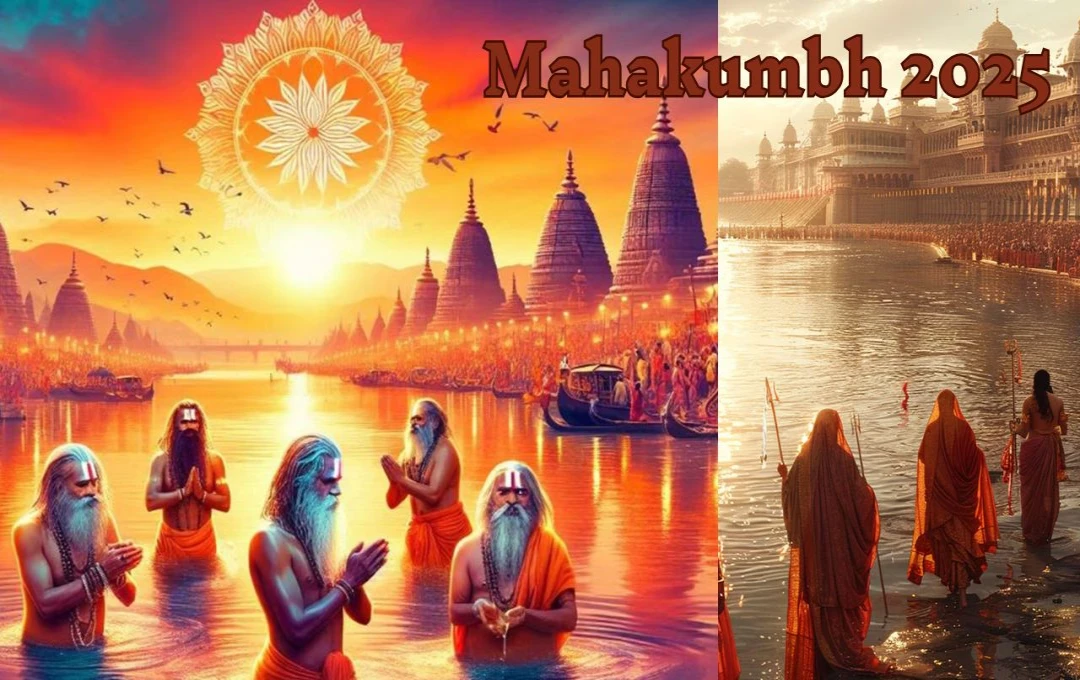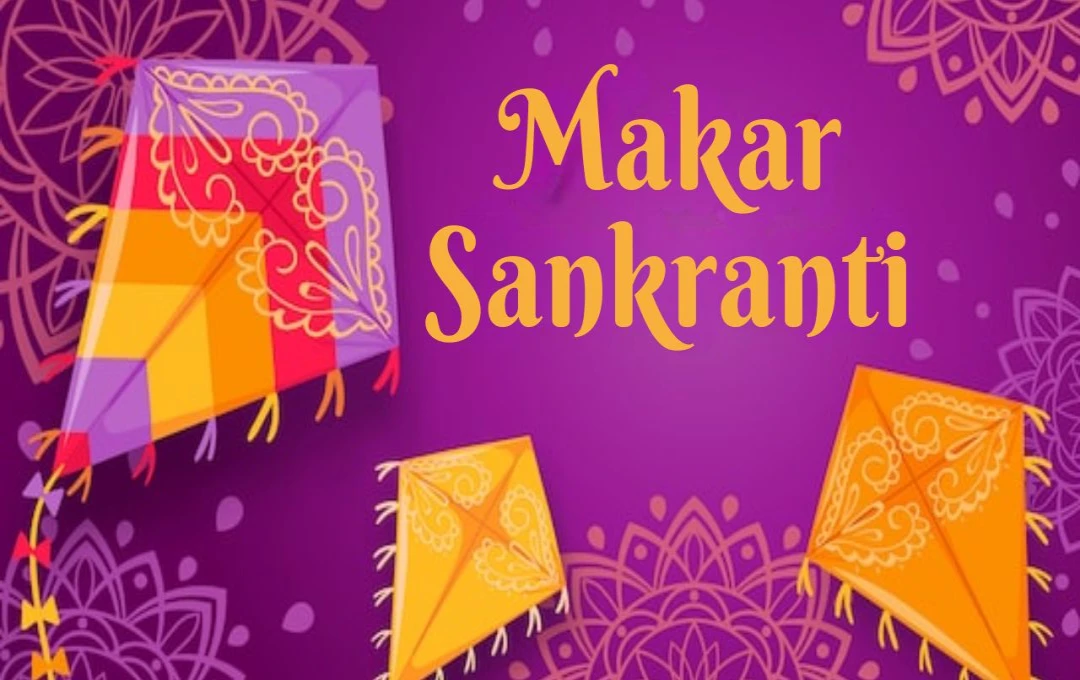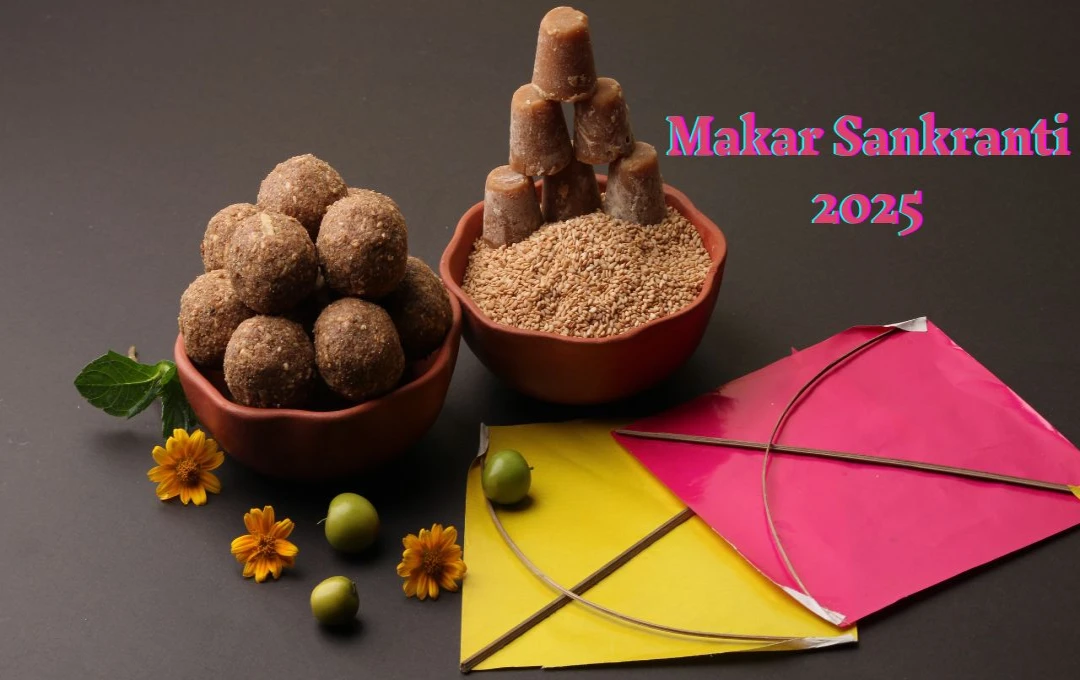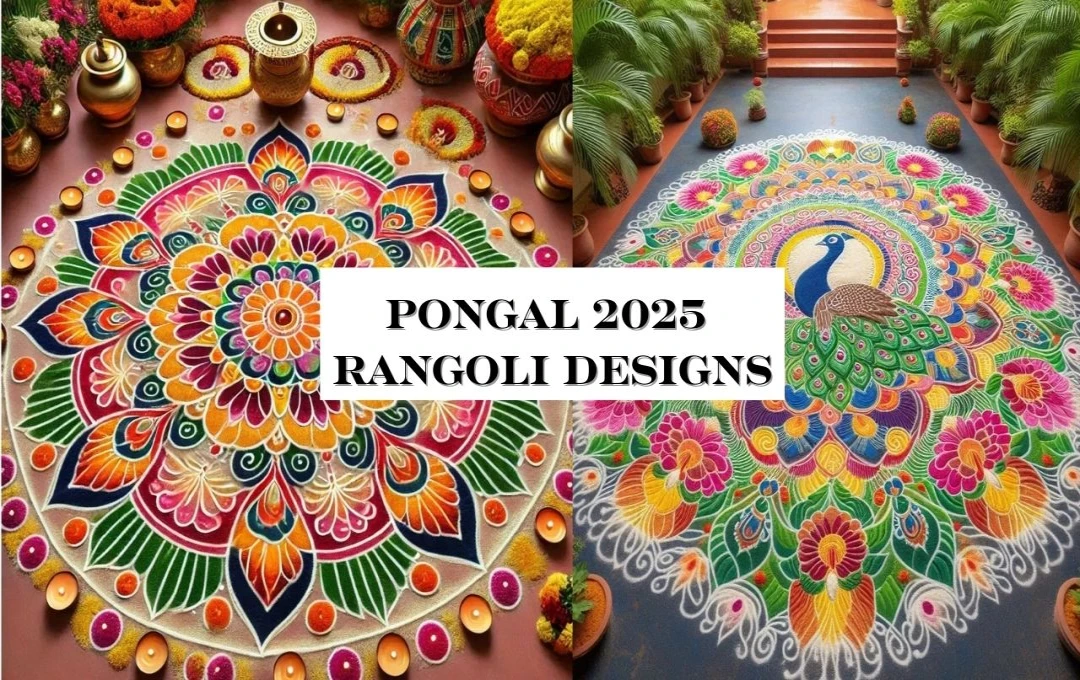Pongal: Pongal is a significant harvest festival celebrated in South India, particularly in Tamil Nadu. This festival is observed to express gratitude towards the Sun God, Indra, and nature. Pongal, meaning "to boil," symbolizes abundance and prosperity. It is celebrated in mid-January, marking the beginning of the new harvest season.
Pongal is celebrated annually with great enthusiasm in January. It is the primary harvest festival of South India, especially Tamil Nadu. Pongal signifies 'boiling', symbolizing prosperity and gratitude. This year, Pongal will begin on January 14, 2025, and conclude on January 17.
Four-Day Pongal Festival
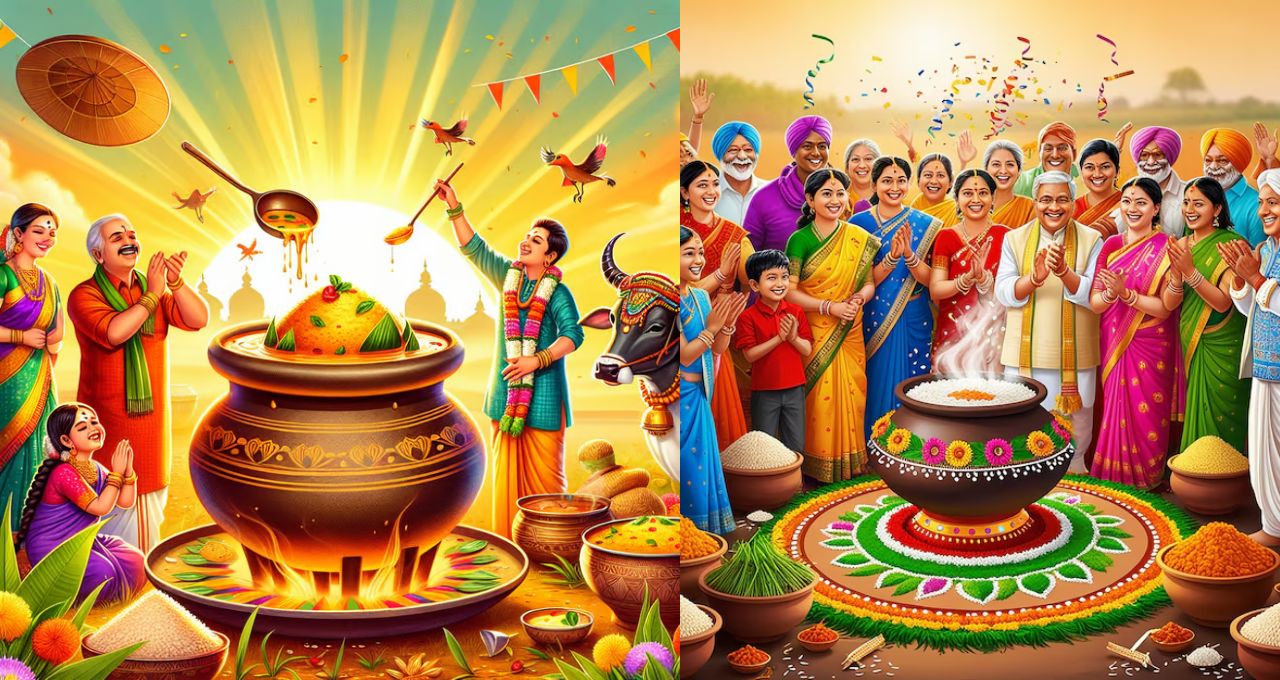
• On Bhogi Pongal, people clean their homes and discard old things, welcoming new ones. This signifies renewal and a fresh start. Homes are decorated with rangoli and embellishments.
• Thai Pongal is the main day. On this day, the Sun God is worshipped. A traditional sweet dish called Pongal, made with milk, rice, and jaggery, is prepared in earthen pots and offered to the Sun God.
• On this day, cattle, vital to agriculture, are honored. Bulls and cows are decorated, worshipped, and given delicious food.
• The final day of the festival is dedicated to spending time with family and friends, exchanging gifts. People enjoy outings and strengthen familial bonds.
History and Significance of Pongal
• Pongal has a history spanning thousands of years. The festival is associated with the story of Lord Shiva and the Nandi bull. According to legend, Lord Shiva sent Nandi to Earth to assist farmers, leading to the celebration of this harvest festival.
• Pongal symbolizes gratitude towards the Sun God and nature. It is also known as the 'Festival of Thanks'. It is considered the New Year in South India and signifies the prosperity of agriculture and the happiness of families.
How is Pongal Celebrated?
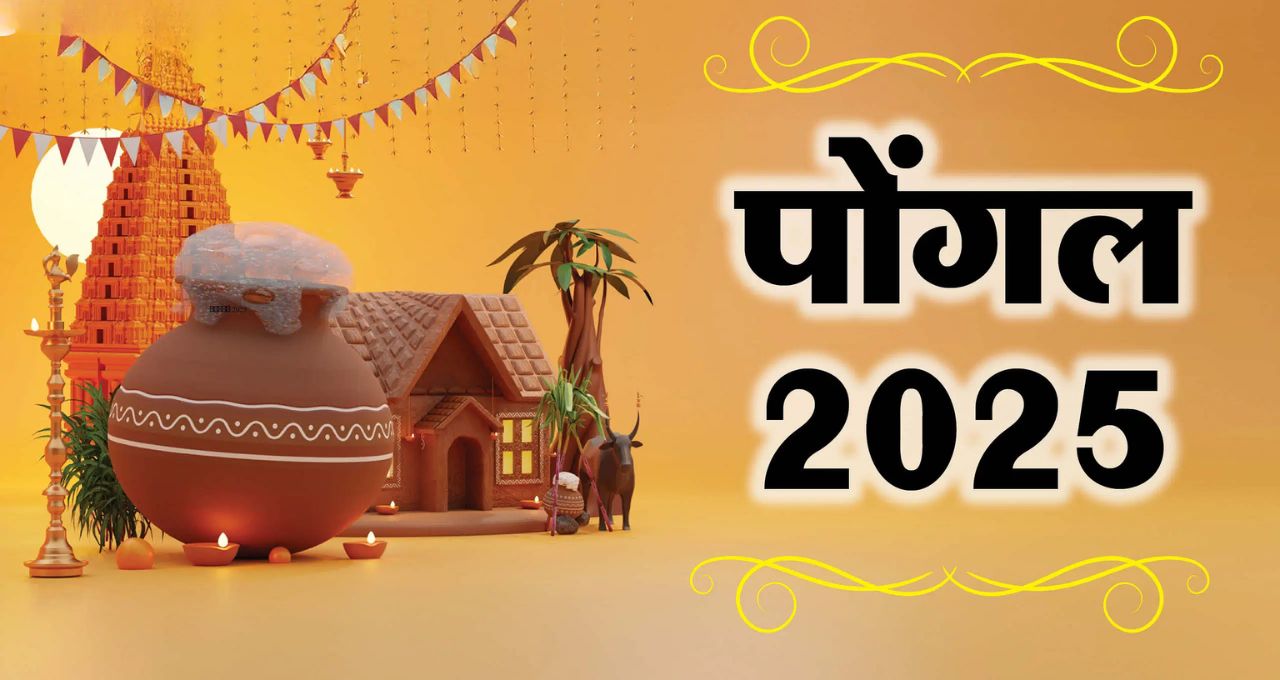
• A highlight of the Pongal festival is its special dish. This sweet dish, made from rice, milk, and jaggery, is cooked in earthenware pots and offered to the Sun God.
• Beautiful rangoli designs are created with rice flour outside homes. People wear new clothes and celebrate the festival with enthusiasm.
Worship of Bulls
On Mattu Pongal, bulls and cows are decorated. Jallikattu (a bull-taming sport) is a prominent part of this day in Tamil Nadu.
Importance of Pongal
Pongal is more than just a festival; it represents the culture and traditions of Tamil Nadu. It symbolizes harmony between nature and humanity.
Interesting Facts about Pongal
• Pongal is named after the sweet dish.
• During the festival, the Sun God and Indra are worshipped.
• Old things are discarded and new beginnings are made during Pongal.
• Bull races (Jallikattu) are held in Tamil Nadu on Pongal day.
10 Key Points about Pongal
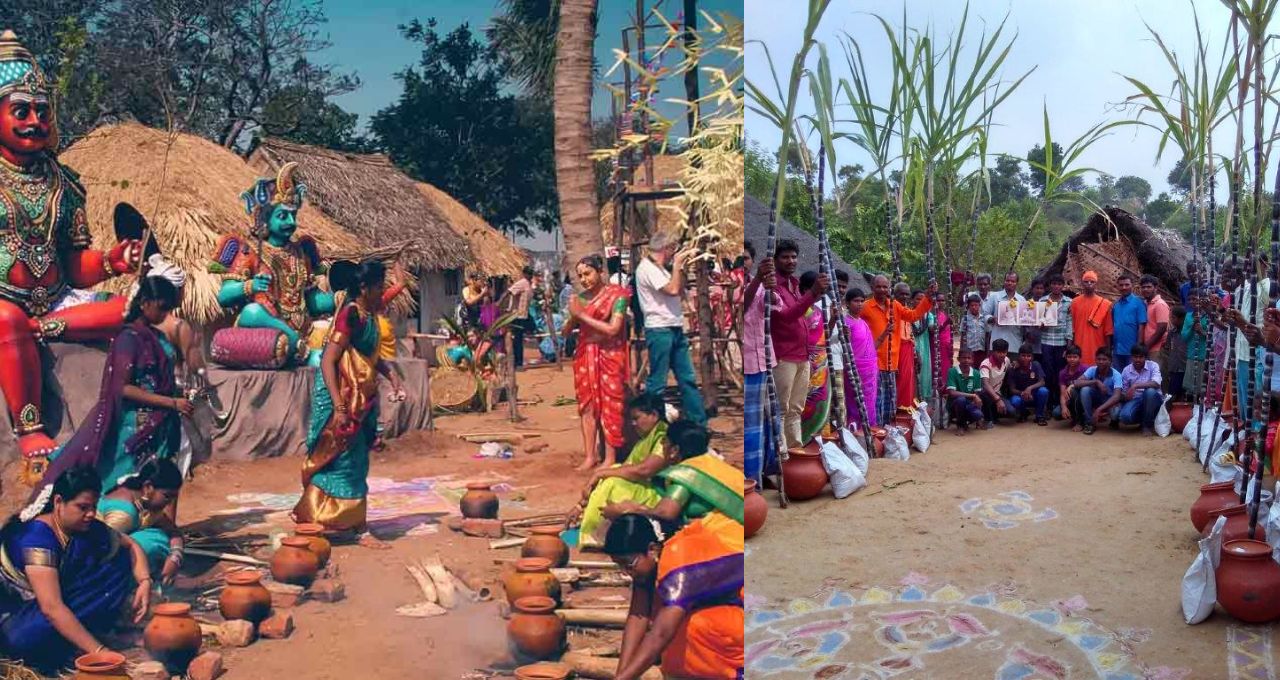
Pongal is a significant harvest festival of Tamil Nadu.
The festival lasts for four days.
Homes are cleaned on Bhogi Pongal.
• The Sun God is offered Pongal on Thai Pongal.
• Cattle are worshipped on Mattu Pongal.
• It is celebrated in mid-January.
• Pongal is made with rice, jaggery, and milk.
• Rangoli is a special part of the Pongal celebration.
• Pongal marks the beginning of the Tamil New Year.
• It is a celebration of nature and agricultural prosperity.
The Pongal festival embodies the lifestyle rooted in tradition, culture, and agriculture of South India. It fosters gratitude, prosperity, and collective joy. Each day of this vibrant Tamil Nadu festival holds unique and special significance.
